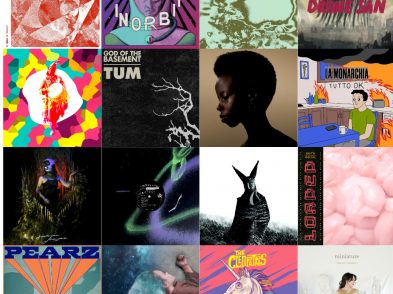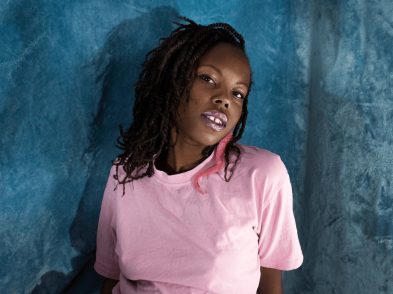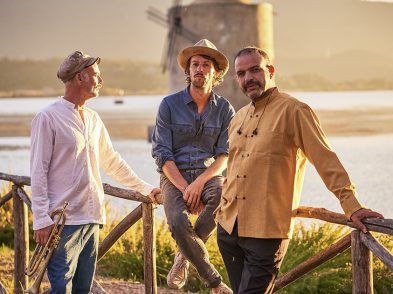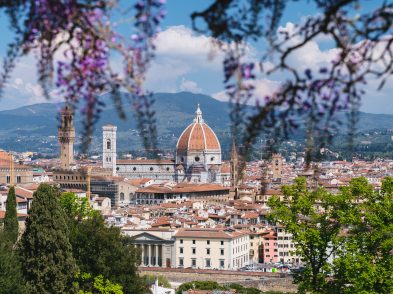On Saturday December 3, from 9.30 am to 11 pm, some of the most beautiful hidden gems in Florene will echo with the serenades of an extraordinary festival: at its first edition, Strings City involves 40 locations spread all throughout the city and counts over 30 hours of live concerts where the common denominator is string instruments of all kinds. Violins, harps, guitars, violas and vocal chords (the quintessential chord instrument) – the program has it all. Of all the amazing venues involved, we wanted to shine a light on some of the most well-hidden gems Florence has to offer.
Organised by the Comune di Firenze within the Estate Fiorentina program, and curated by the Scuola di Musica di Fiesole alongside Conservatorio “Luigi Cherubini”, Maggio Musicale Fiorentino and Orchestra della Toscana, the event is totally free. All you have to do is book your spot on the official Strings City website. Some concerts are already fully booked – but don’t worry. These spaces are open all throughout the year and host equally interesting events… and we’re hoping that a second edition of the festival will soon be confirmed.
The Sacristy of Florence’s Officina Profumo Farmaceutica
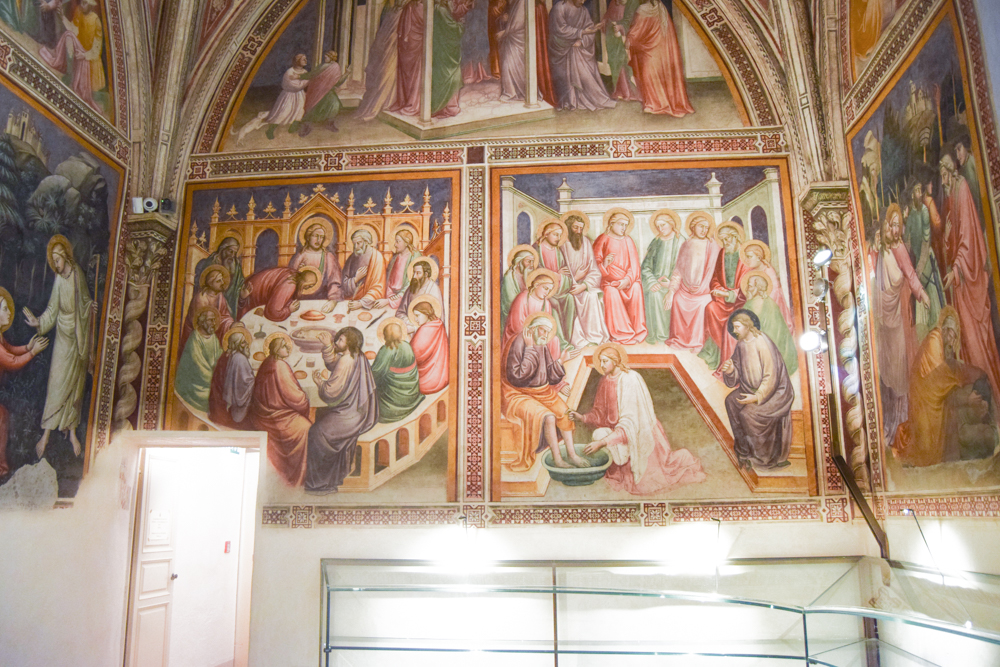
Scenes from The Passion of Christ attributed to Mariotto di Nardo
Just a few steps away from Piazza Santa Maria Novella, Florence’s Officina Profumo Farmaceutica offers a daily gateway onto the history of Tuscany’s excellence in the perfume industry. Active since 1612, it is considered one of Europe’s most ancient pharmacies. Here, dominican monks used to prepare ointments, balms and infusions and created custom-made fragrances for some of the city’s most important historical figures (The delicate bergamot-infused “L’Acqua della Regina”, for example, was created for Caterina de’ Medici and is still for sale to this day). The old pharmacy undergoes constant renovation and is in continuous expansion – in 2014 the structure opened a delightful tea room area, where you can find refuge from the hustle-and-bustle of the Florentine streets. On the occasion of String City, at 6 and 7 pm you will be able to admire the wonderful Sacristy with frescoes, attributed to 15th century painter Mariotto di Nardo, commissioned by the Acciauoli family and completed in 1405. This is truly a unique occasion to take in the romantic filigree-like sounds of the harp spun with the lingering scents of centuries past.
Address: Via della Scala, 16
Arcetri’s Astrophisical Observatory
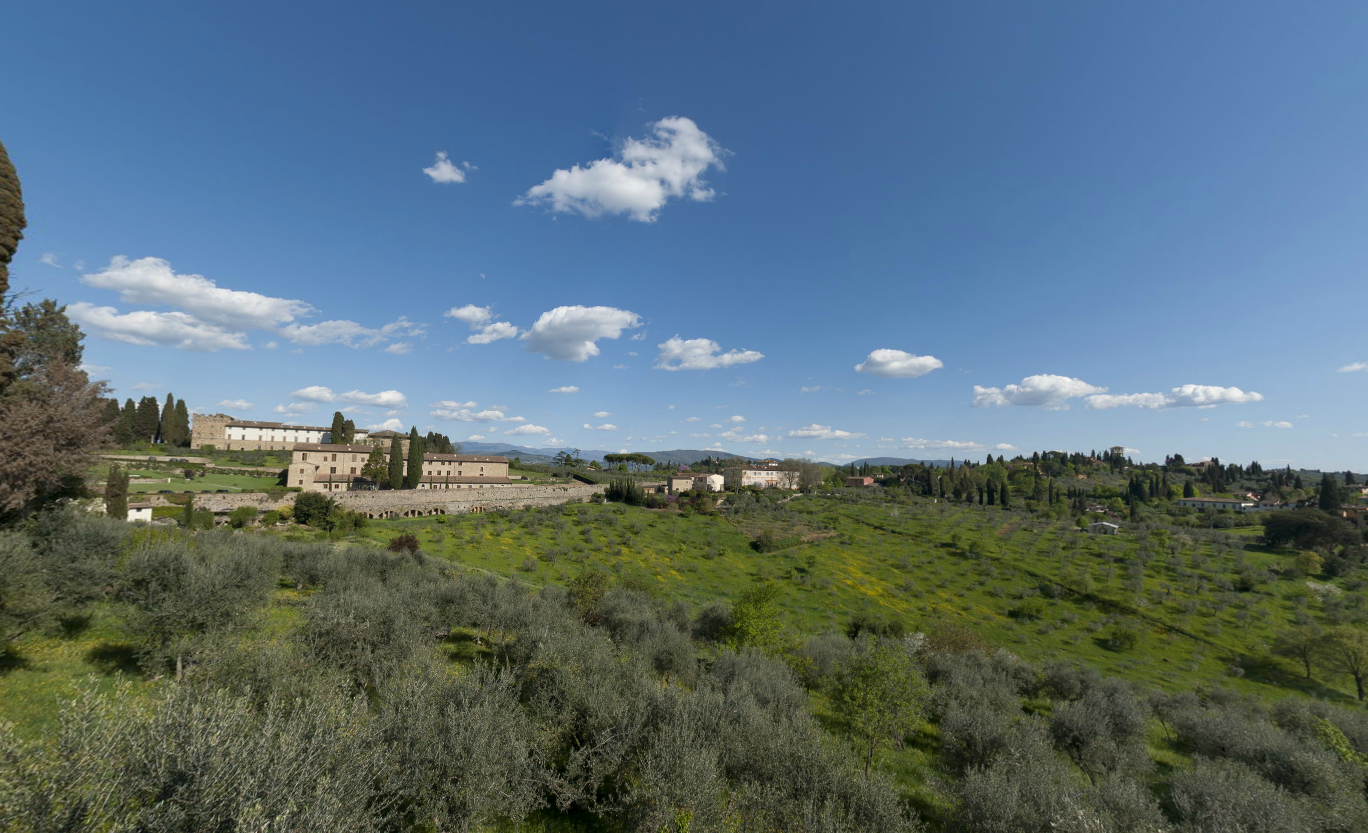
One of the best hidden gems in Florence: the view from Arcetri
One of the most well-hidden stars of Florence’s blinding firmament of sights, the Arcetri Astrophisical Observatory lies burrowed on a hillside just south of the city centre. It is no coincidence that the structure is located in the same area of Villa il Gioiello, where famed astronomer Galileo Galileo resided from 1631 to 1642. Built in 1872, not only is it the gateway to the starts: it also offers breathtaking views of the surrounding verdant countryside and, over the years, it has opened its doors to the public for guided tours, workshops, visits to the planetarium, exhibits and special events for both adults and children and nighttime visits (Put this on your to-do list!). For Strings City, the observatory’s library, which holds one of Europe’s most vast collection of monographs and research material, will be hosting duo Giacomo Rafanelli and Andrea Pani’s concert for violin and viola at 4.30 pm. Take a panoramic walk from Porta Romana or the Piazzale Michelangelo – it is absolutely worth the sweat.
Address: Largo Enrico Fermi, 5
The Istituto degli Innocenti’s Caffé del Verone
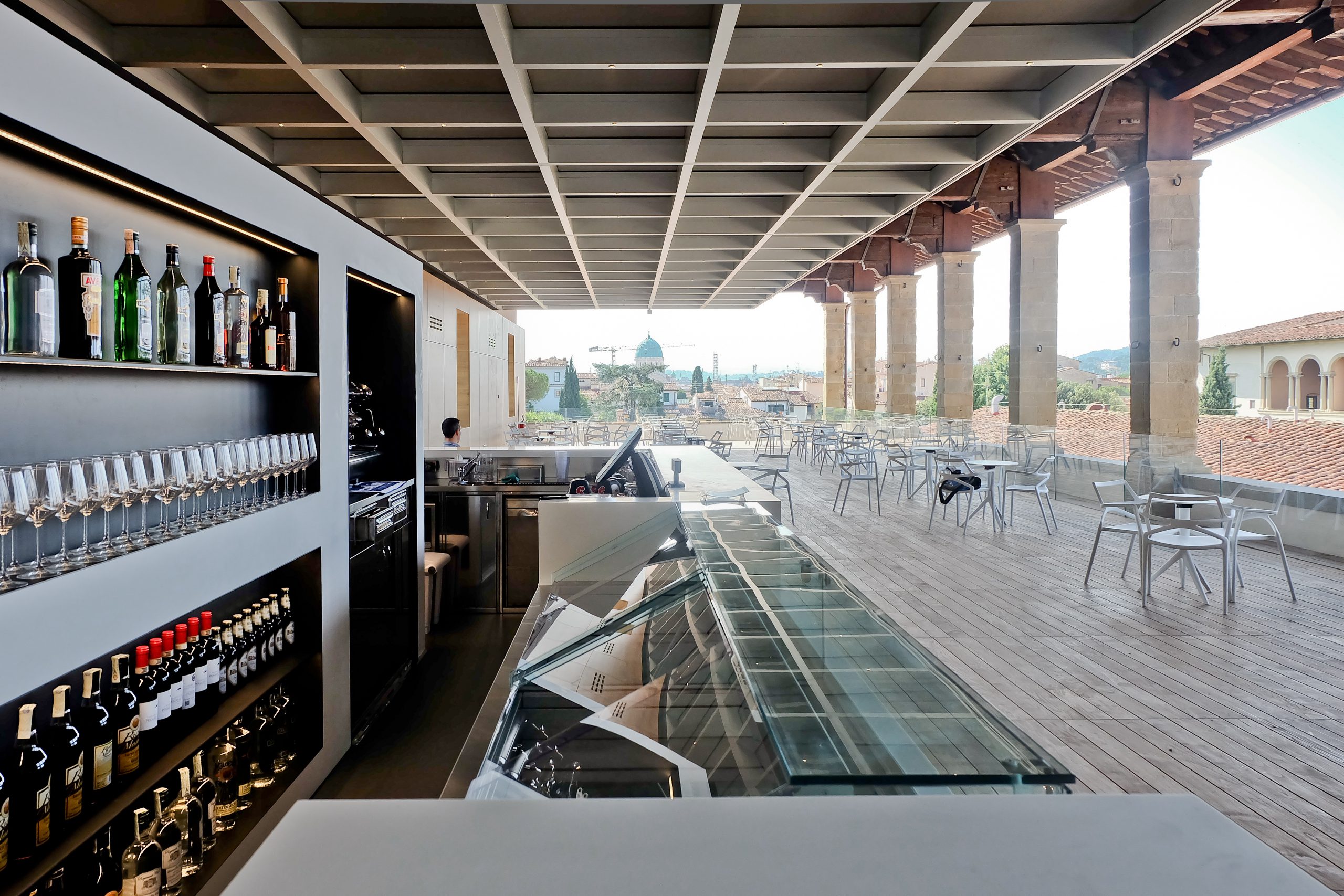
Now that’s what we call a view! Ph. Jacopo Carli
Since its reopening in June 2016, the Istituto degli Innocenti in Piazza Santissima Annunziata has acquired an ever-growing role in the city with its 1456 square meters of exhibition spaces, guided tours, workshops and activities for children. But you might not know that this exceptional museum also offers rooftop solace in its Caffè del Verone. Wood and glass finishes give this light-filled venue a modern touch, offering spectacular views on the Duomo and Synagogue that even non-ticket holders are free to enjoy all year round. At 2.30 pm on Saturday December 3, guitar player Emanuele Segre will enchant the audience with a selection of 6-string rhythms that range from South America to France. Sounds like the perfect after-lunch gig!
Address: Piazza della Santissima Annunziata, 13
The main reading room of the Biblioteca Marucelliana

Strings City aside, this is an absolute must-see location!
Not many know that just a stone’s throw from Piazza San Marco lies another Florentine treasure: the Biblioteca Marucelliana. Founded by the mid-18th century by the will of Abbot and biophile Francesco Marucelli, it contains over 40,000 volumes, 2,000 manuscripts, 10,000 historical documents – it is still archiving material to this day. The two-story reading room was re-opened this May after careful restoration work and showcases Marucelli’s core collection of antique volumes. Safe-haven to students and scholars from all over the world, the hall is lovingly-yet-sternly overlooked by the silent marble bust of Marucelli himself. Here at 5.30 pm you will hear the Scuola di Musica di Fiesole’s ensemble performing Bach, Schubert and Dotzauer. Strings City is only one of the many events the library hosts–until January 31st don’t miss the insightful exhibition featuring pre-WWI children’s literature and original copies of Lacerba, a Florence-based literary journal associated with the Futurist movement.
Address: Via Camillo Cavour, 43
The Museum and Florentine Institute of Prehistory

A cool place for adults and kids alike!
Did you know that Florence has its very own Museum of Prehistory that has been located in the beautiful monastery complex of the Oblate since 1946? The collections goes way back to the Pre-stone age, ranging up to more recent times in order to showcase the multiple manifestations of human activity over the centuries. Alongside ancient specimens of pottery, handmade weapons and statuettes you can find modern pieces of art by Daniele Spoerri and temporary exhibitions of works by emerging young artists from Florence’s Academy of Fine Arts, a curatorial choice by Museum director Fabio Martini that believes that “Although we are a Museum of Prehistory, we are not fossilized in the past. Humankind is still the same as centuries ago – the brain size is the same, we’ve just become frailer. It is important for us to make all of mankind’s manifestations coexist“. The Museum’s Conference hall will host a Baroque quintet at 3 and 4.30 pm – in the meanwhile the museum will be open to the public. Bring your children – satisfaction guaranteed!
Address: Via Sant’Egidio, 21
Casa Museo Rodolfo Siviero
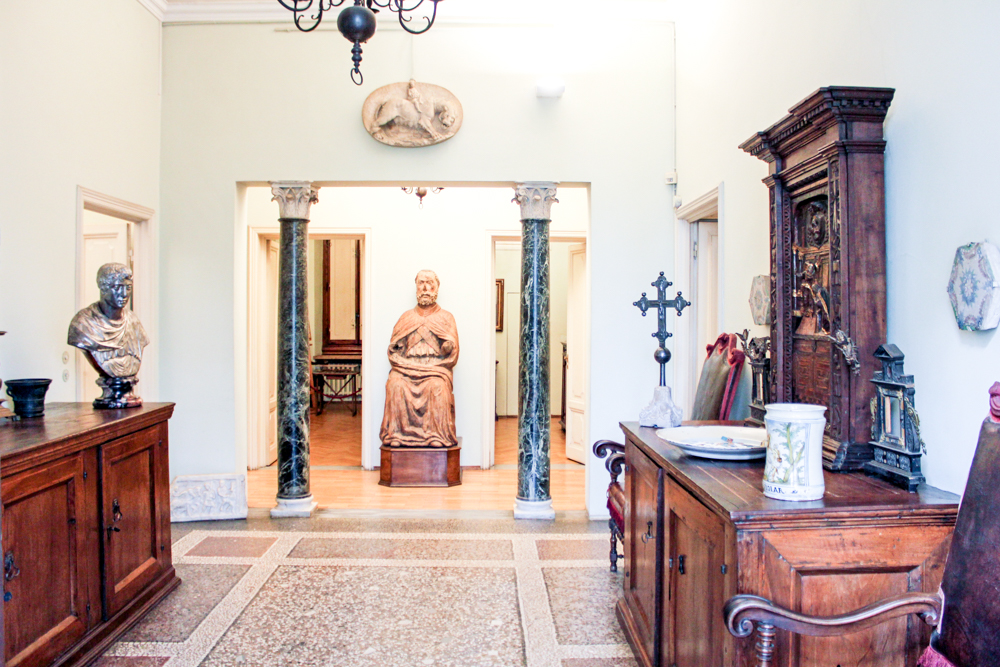
Strings City will make this room resound with music! Ph. Attilio Tori
Not many know the story of Rodolfo Siviero, a humble yet extraordinary man that helped save numerous artworks from falling into the clutches of “Nazi Plunder”. A bonafide “Italian 007”, Siviero was born in 1911 in the province of Pisa but moved to the Renaissance capital in 1924 to study arts and literature at the University of Florence. Although his aim was to become an art critic, he ended up joining Italy’s secret service in 1930. Swiftly swapping sides from fascist to anti-fascist front, Siviero also coordinated the Italian partisans’ intelligence activities. He dedicated his life to retrieving and hiding looted artworks and at his death he left his wonderful Neo-Renaissance home on the Lungarno Serristori to the region of Tuscany. For Strings City, at 6pm and 7.30 pm the first floor will resound with the notes of Mozart and Hoffmeister and the museum will offer a free guided tour of the rooms, where you can admire paintings by Giorgio De Chirico, Ardengo Soffici, Pietro Annigoni and gilded Medieval tableaux. The museum is open Sunday and Monday from 10 am to 1 pm all year round. The entry is free of charge.
Address: Lungarno Serristori, 1
The Sacello del Santo Sepolcro
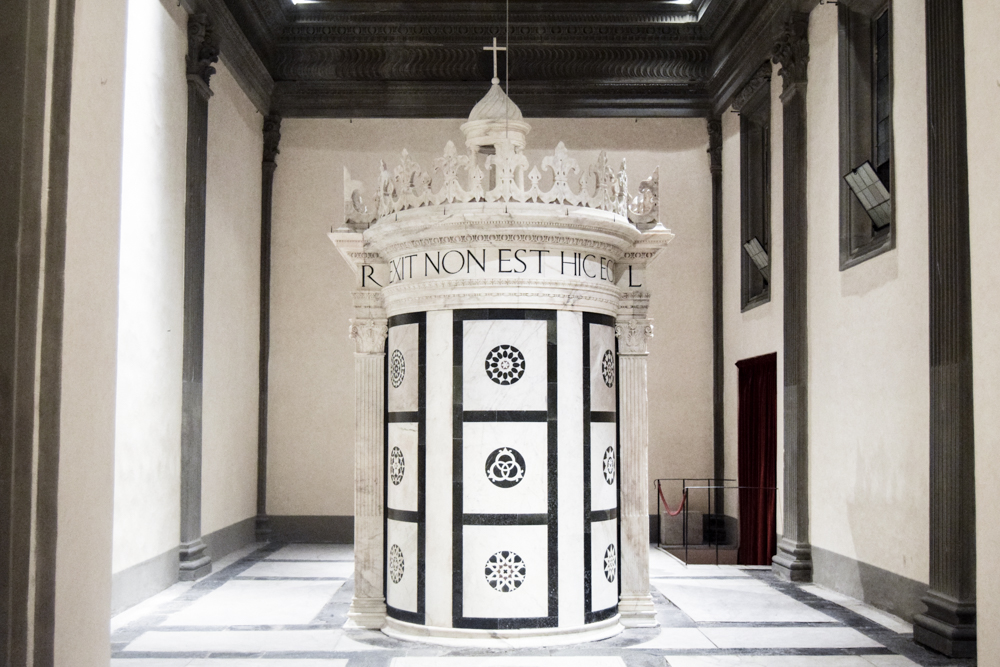
Leon Battista Alberti knew his skills: this is pure marble perfection
Inside the ex-Church of San Pancrazio, now home to the Marino Marini foundation and museum, there is a place of unsuspected sacred beauty: the Rucellai sepulchre, also known as the sacellum of the holy sepulchre. Built on Leon Battista Alberti’s designs, this magnificent marble structure dates back to 1467 and holds the tombs of Florentine patron Giovanni Rucellai and his family. The small temple is a classical take on Jerusalem’s Holy Sepulchre, where it is said that Jesus Christ was buried, while its elaborate marble tarsus decorations follow the romanesque tradition. Its surreal beauty and candor are breathtaking and here at 4.30 and 5.30 pm 4 solo cellists will play a repertoire of Johann Sebastian Bach’s suites.
Address: Piazza di S. Pancrazio
Here is the complete listing of the spaces involved:
Accademia delle Arti del Disegno
Accademia di Belle Arti di Firenze – Cenacolo
Archivio di Stato di Firenze – Auditorium
Archivio Storico del Comune di Firenze – Salone di Consultazione
Battistero di San Giovanni
Biblioteca delle Oblate – Nuova Sala Conferenze & Sala Storica
Biblioteca Marucelliana – Salone di Lettura
Biblioteca Nazionale Centrale di Firenze – Sala Galileo
Biblioteca Thouar – Sala Altana
Cenacolo di Sant’Apollonia
Complesso Monumentale di Santa Croce – Cappella Cerchi
Complesso Monumentale di Orsanmichele
Gabinetto Vieusseux – Sala Ferri
Galleria Palatina e Appartamenti Reali – Sala Bianca
Istituto Francese – Sala Cinema
SUC Le Murate – Sala Ketty La Rocca
Museo Bardini – Sala della Carità
Museo Casa di Dante – Sala Conferenze
Museo Casa Rodolfo Siviero
Museo degli Innocenti – Verone
Museo dell’Officina Profumo-Farmaceutica di Santa Maria Novella – Sagrestia
Museo della Casa Fiorentina di Palazzo Davanzati
Museo di Casa Martelli
Museo Fiorentino di Preistoria – Sala Conferenze
Museo Galileo – Sala Maria Luisa Righini Bonelli
Museo Marino Marini di Firenze – Sacello del Santo Sepolcro (Cappella Rucellai)
Museo Novecento – Sala Altana
Osservatorio Astrofisico di Arcetri – Biblioteca
Palagio di Parte Guelfa – Sala Brunelleschi & Sala dei Gigli (o delle Udienze)
Palazzo Medici Riccardi – Locali scavi archeologici & Sala Luca Giordano
Palazzo Strozzi
Palazzo Vecchio – Sala d’Arme
Società Dantesca
Teatro della Pergola
Teatro Niccolini
Villa Bardini – Salone


